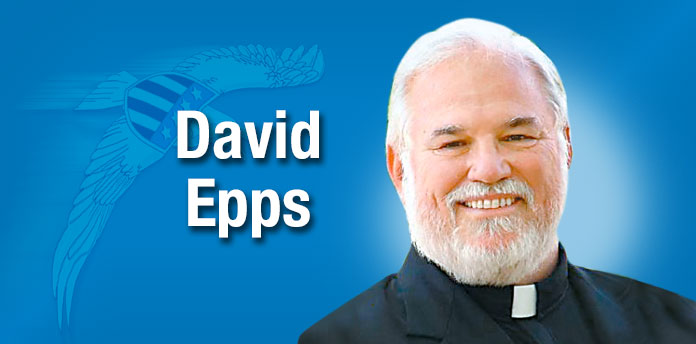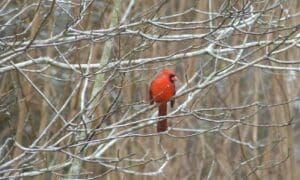The other night I was watching the program, “Life Below Zero: The First Alaskans,” a spin-off from the original, “Life Below Zero” reality show.
While the original show had a native Alaskan family, with the exception of the father who was a Caucasian, this program is focused on “first peoples” and their survival in the harsh environs of our largest state.
In this segment, a man and his wife were hunting for moose to stock their freezer for the winter. After miles of walking, a glimpse of a moose was seen in the trees. The husband whispered, “I think it’s a bull,” and prepared his rifle. He waited until the moose emerged from the trees, his finger already beginning to squeeze the trigger. And then he stopped.
Coming out of the trees was not a bull moose but a cow and, with her, a large calf. The cow stopped to stare at the couple and the man lowered his rifle. He shared that he could not shoot the cow because, to do so, was to shoot not one moose but fifty or sixty. To shoot a bull was to shoot one male moose.
But, according to the native hunter, to shoot a cow was to eliminate generations of moose that would come from that one cow. It wasn’t just about filling the freezer for one winter … it was about preserving the future for the man’s children, grandchildren, and great-grandchildren.
From that one cow would come generations of moose that would benefit the future people who would hunt the forest.
Certainly, I had never considered that reality. Most people that I know would have only seen the animal in front of them and would give little, if any, thought to the future generations and the world in which they would live. When the native man explained why he would not shoot the cow, it seemed so profound. Of course, from the cow would come generations — if the cow were allowed to live.
It is popular among many to view “first peoples” as more enlightened than modern man. The native peoples are seen to be more concerned about the earth, the environment, the balance of weighing the present against the future.
Their understanding of the world about them is seen in contrast to, for example, the European settlers who slaughtered the buffalo to near extinction with little or no thought to what that would mean.
I have lived long enough to know that the elimination of unborn children has a more serious effect on the future than even the shooting of a moose cow. Over the years, I have had the awesome privilege of having a part in walking alongside several mothers who were experiencing an “unwanted” pregnancy who made the decision to have their baby.
Five of those women come immediately to mind. Three of the children who were born were girls with two being boys. Three were adopted by parents who wanted children and two were kept by their mothers. All five children are adults now.
One of those children became a soldier and honorably served this nation in one of the desert wars. He is now a father himself. One of the girls graduated not too long ago from a major university. Another of the girls is married with children of her own. The other boy is now a husband and a father.
I lost touch with the mother of the other girl, but I do know that, once the decision was made and the child was born, the mother had no regrets and doted on her little daughter.
These are only a few of the real-life dramas that I have seen played out over the years. I have, over the decades, baptized many children who were born “out of wedlock.” I once had a person in a particular church raise strenuous objections to baptizing such children on a Sunday morning during a public service, saying that “it sent the wrong message.”
But I disagree. The message is that “all life is sacred.” When we Christians quote that passage from the Old Testament where God says, “Before I formed you in the womb I knew you,” we must understand that it includes all the children, not just those who come from a “traditional” family.
Are not those children more valuable than moose cows? Are not their generations to come at least as significant as the moose who will be born because someone chose not to pull the trigger?
I understand that a large number of people will never agree with me. I am okay with that. I also understand that we live in a society where the eggs of sea turtles and eagles have more legal protection than our own children in the womb. And I am not okay with that.
So, I will continue to do my small part. I will continue to support crisis pregnancy centers, pro-life organizations, and I will continue to stand with and support mothers who face difficult days. I will encourage adoption rather than abortion and I will continue to baptize babies whether there are fathers in the home or not.
And whether these little ones are in my own family or in my church family, I will continue to love them and their mothers and pray for them and remind them of the promise of Jeremiah 29:11 which states: “For I know the plans I have for you, declares the LORD, plans to prosper you and not to harm you, to give you a future and a hope.”
What I cannot and will not do is have a part in pulling that trigger.
[David Epps is the Rector of the Cathedral of Christ the King (www.ctk.life). Worship services are on Sundays at 10:00 a.m. and on livestream at www.ctk.life. He is the bishop of the Diocese of the Mid-South (www.midsouthdiocese.life). He may contacted at [email protected].]













Leave a Comment
You must be logged in to post a comment.